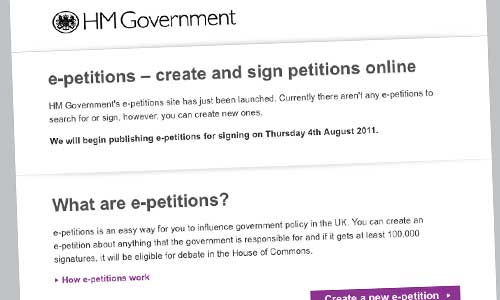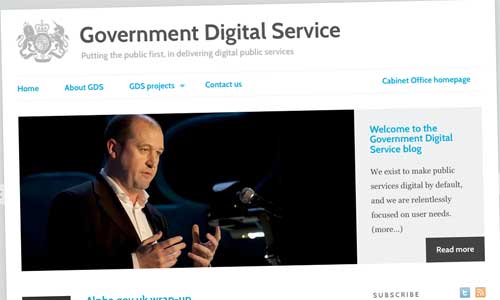I came away from this year’s UKGovCamp with an uncomfortable sense of there being an ‘us’ and a ‘them’.
The day opened with Dave Briggs declaring the event was different because, among various examples he quoted, it didn’t have a keynote address. The day concluded with a keynote address by a senior Cabinet Office civil servant, who proceeded to tell us what his team of hired specialists were going to do.
But the ‘us and them’ was even more apparent in the first session I attended, led by the Cabinet Office’s Liam Maxwell, on the subject of open standards. The substance of the presentation was:
- we think open standards are very important;
- we’re doing lots of very important things, none of which we can talk about;
- but we’d value your input when the time comes.
I voiced a certain amount of frustration in the questions which followed, so it won’t surprise Liam if I say it all felt thoroughly unsatisfying.
Having said that, I did – and do – have some sympathy. Open standards are commercial dynamite: software lock-in is worth £££millions to the big vendors. Enough for those vendors to put up a hell of a fight, in defence of an unsustainable and #unacceptable status quo. And to extend my metaphor just one step further, Liam and his colleagues were keeping their powder dry.
The aforementioned time for our input has now come: the Cabinet Office has opened its consultation process, with Liam asking for ‘as much feedback from the IT community as possible… There’s a lot of strong opinion on this subject,’ he says, ‘so I’m urging people to take this opportunity and let us know what they think.’
The consultation ‘document’ is online, and it’s been done on WordPress. 😉
The interactive part of the site comes in three pages of questions, two of them very long and very scary, powered by a bespoke plugin (by the look of it). At the very top, it declares:

which may not be quite what they meant. Based on the error message displayed following a blank submission, it looks like only name and email address are actually required, plus an answer to at least one question. And if there’s an asterisk anywhere, I’ve yet to find it.
The exercise itself is all rather semantic, and the language inevitably technical. It goes way over my head, to be perfectly honest. But my feelings on open standards are easily summarised:
As open as possible, as standardised as possible, as soon as possible.
Based on my experience in the Civil Service, it’s that final point which is probably most important. I’ve been scarred by past experiences – notably around the Government Category List and eGMS, which both took several years, went through numerous iterations, and yet seemed to deliver no tangible benefits. (Correct me if I’m wrong.)
This time round, hopefully, things are different. The ‘cloud computing’ narrative has been widely accepted; and implicit in that is the belief that government’s needs are not unique. Government should be looking to embrace standards that are already being widely adopted – and where there are any (perceived) deficiencies, it should play a part in their development.
Exactly how it does that, frankly, is up to smarter people than me.


